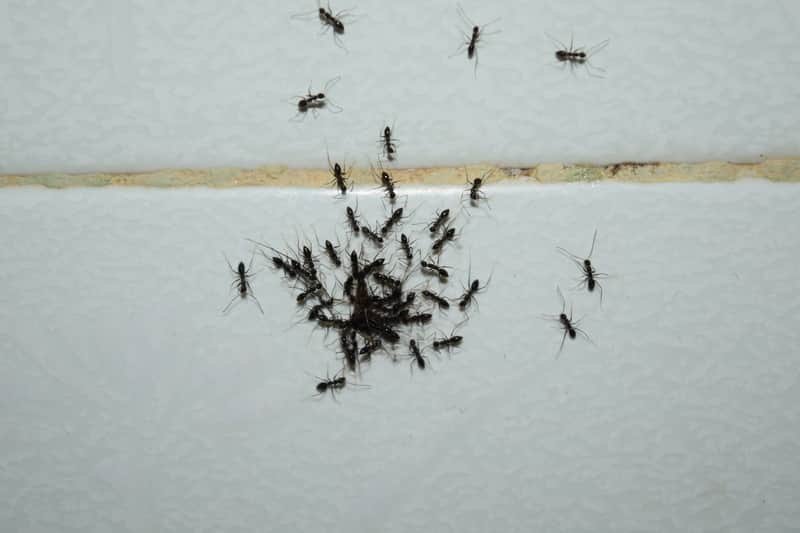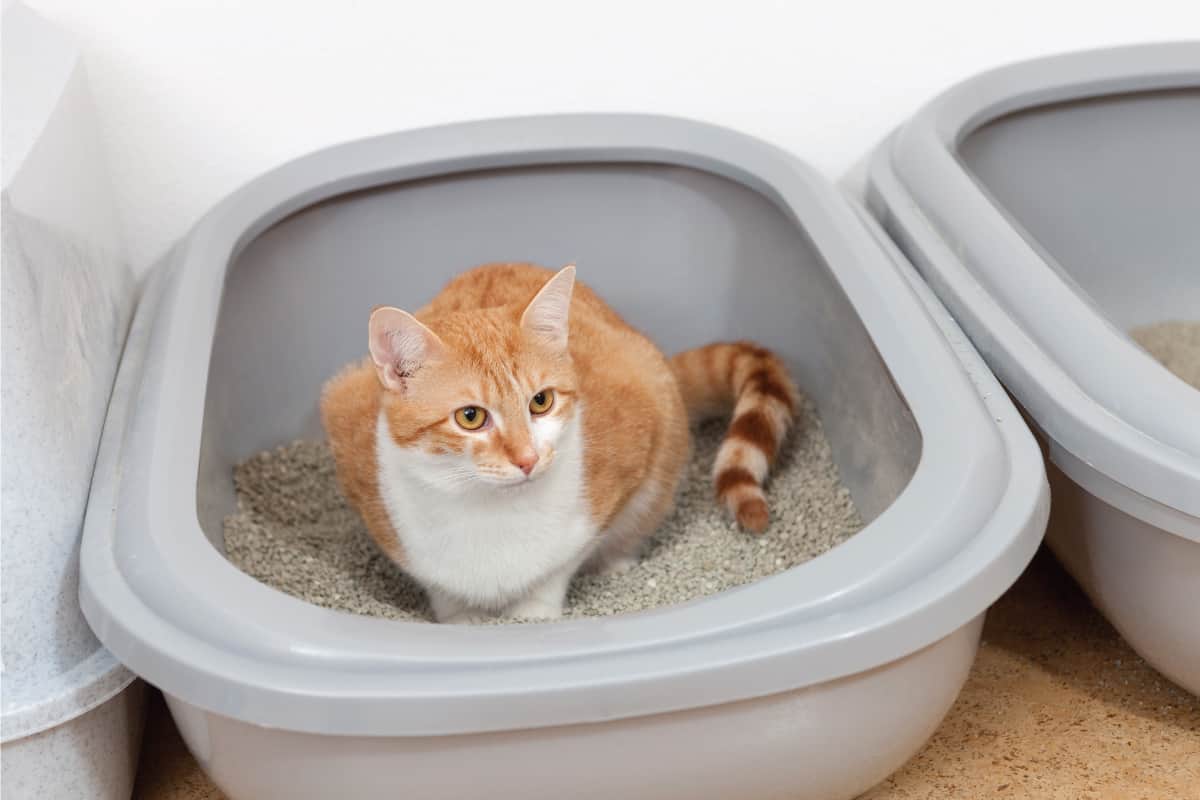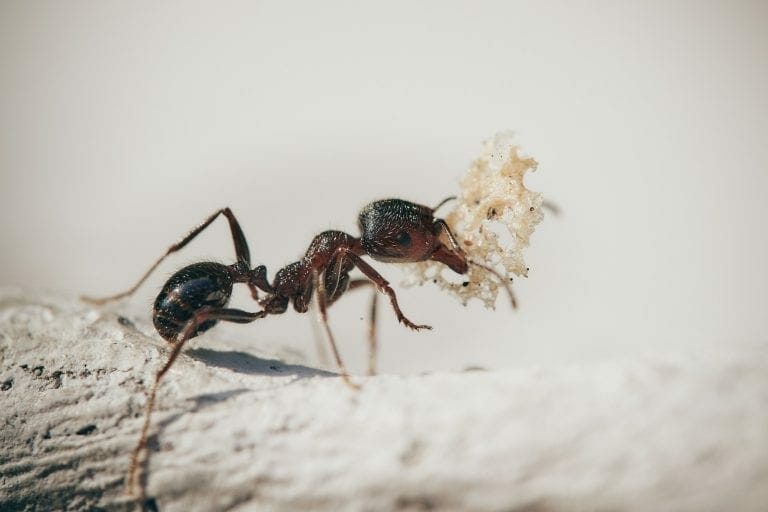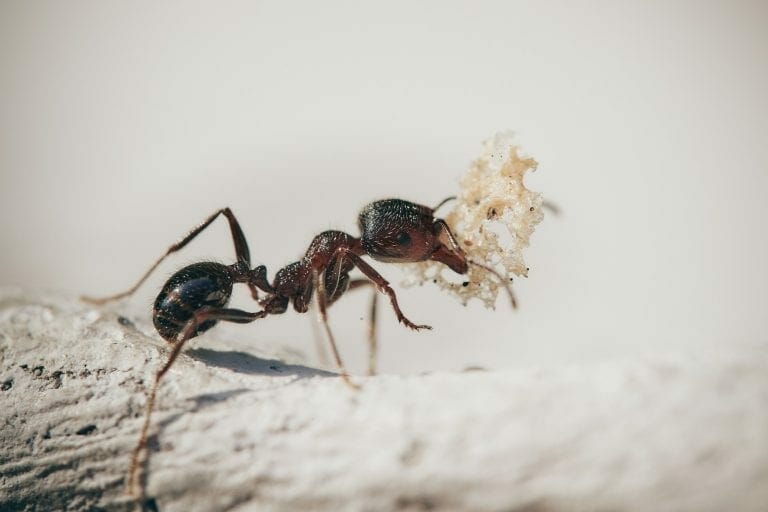Curious about whether ants are attracted to cat litter? While ants are generally attracted to food sources, cat litter itself is not a direct food source for them.
Ants are more likely to be attracted to any food particles or spills near the litter box. However, keeping the litter box area clean and free of any spills can help prevent ants from being drawn to it.
Additionally, using cat litter made from natural ingredients can further discourage ant activity.
Let’s discuss the issue further and walk you through the solutions available.

Natural Cat Litter: A Solution to Ant Infestations
Ant infestations can be a frustrating problem for homeowners. These tiny insects can invade your home, making their way into your food, causing damage, and even posing health risks. While there are various methods available to control ant infestations, one effective and environmentally-friendly solution is using natural cat litter.
The Problem with Traditional Cat Litter
Traditional cat litter is typically made from clay, which is not only harmful to the environment but can also attract ants.
Clay litter is often highly absorbent, retaining moisture and providing an ideal environment for ants to thrive.
When ants find their way into your home, they can detect the moisture in the litter and see it as a potential food source, leading to an infestation.
The Benefits of Natural Cat Litter
Natural cat litter, on the other hand, is made from biodegradable materials such as pine, corn, wheat, or recycled paper.
These materials are not attractive to ants, making natural cat litter an effective deterrent for ant infestations.
Additionally, natural cat litter is eco-friendly, as it decomposes naturally and reduces the amount of waste that ends up in landfills.
How Natural Cat Litter Works as an Ant Deterrent
Ants rely on their sense of smell to locate food sources. Natural cat litter, such as pine litter, emits a scent that ants find unpleasant and will avoid.
The strong smell acts as a deterrent, helping to keep ants away from your home.
By using natural cat litter in your cat’s litter box, you can create a barrier that repels ants and prevents them from entering your living space.
Tips for Using Natural Cat Litter to Prevent Ant Infestations
Here are some tips to effectively use natural cat litter as a solution to ant infestations:
- Choose a high-quality natural cat litter made from materials like pine, corn, wheat, or recycled paper.
- Ensure that your cat’s litter box is clean and free of any spilled litter that may attract ants.
- Place the litter box in an area that is not easily accessible to ants, such as a room with minimal food sources.
- Regularly clean and maintain the litter box to prevent any odors that may attract ants.
- If you notice ants in your home, place small bowls of natural cat litter near their entry points to deter them.

Tips for Preventing Ants from Being Attracted to Cat Litter
Fortunately, there are several effective ways to prevent ants from being attracted to your cat’s litter. By implementing these tips, you can maintain a clean and ant-free litter box environment for your cat.
1. Choose the Right Cat Litter
When selecting cat litter, opt for a type that is not attractive to ants.
Avoid scented litters or those that contain food-grade ingredients, as they can be more appealing to pests. Instead, choose unscented, clay-based litter which is less likely to attract ants.
2. Properly Store Cat Litter
Ants are attracted to the scent of cat litter, especially if it is left in an open or poorly sealed container.
Ensure that your cat’s litter is stored in airtight containers to eliminate any enticing odors that may attract ants. This will help keep the ants away from your cat’s litter box.
3. Clean the Litter Box Regularly
Keeping the litter box clean and free of waste is an important step in preventing ants.
Scoop the litter daily and replace the litter as needed to maintain a fresh environment. Ants are less likely to be attracted to a clean litter box.
4. Use Ant Deterrents
There are various natural ant deterrents that you can use to keep ants away from your cat’s litter box. Sprinkling cinnamon, coffee grounds, or diatomaceous earth around the litter box can help deter ants.
These substances are known to repel ants and can create a barrier that ants are less likely to cross.
5. Create a Physical Barrier
Building a physical barrier around the cat’s litter box can be an effective way to prevent ants from reaching the litter.
You can use adhesive tape or petroleum jelly to create a barrier on the outside of the litter box. Ants will find it difficult to cross these barriers and access the litter.
6. Eliminate Food Sources
Ants are attracted to food sources, including crumbs or spilled cat food near the litter box area.
Make sure to clean up any food spills and regularly sweep the area around the litter box to remove any potential food sources for ants. This will help reduce their attraction to the area.
7. Consider Alternative Litter Options
If you are still experiencing issues with ants despite implementing the above measures, you may want to explore alternative litter options.
There are ant-proof litter boxes available that are specifically designed to prevent ants from accessing the litter.
These boxes have built-in barriers and traps that keep ants out while providing a clean and safe environment for your cat.

Common Mistakes That Attract Ants to Cat Litter
To prevent ants from being attracted to your cat’s litter, it is essential to understand and avoid some common mistakes that can make your cat litter an inviting place for ants.
1. Leaving Spilled Litter
One of the most common mistakes that can attract ants to your cat litter is leaving spilled litter unattended.
Ants are always on the lookout for sources of food, and cat litter can be appealing to them, particularly if it contains bits of cat feces or urine.
If you notice any spilled litter or clumps outside of the litter box, it is crucial to clean it up promptly to prevent any attraction of ants.
2. Placing Litter Boxes Near Food Sources
Another mistake that can attract ants to your cat litter is placing the litter boxes near food sources.
Ants are skilled at finding their way to food, and they can easily navigate from the litter box to your kitchen or pantry if it is in close proximity.
To avoid this, ensure that your cat’s litter box is placed away from any food sources in your home.
3. Using Fragrant Cat Litter
While scented cat litter may help mask unpleasant odors, it can also attract ants. The sweet or floral scent of scented cat litter can entice ants, leading them to invade the litter box. Instead, opt for unscented cat litter to minimize the risk of attracting ants.
4. Neglecting Litter Box Maintenance
Neglecting proper litter box maintenance can also attract ants. It is crucial to regularly clean your cat’s litter box to prevent the buildup of waste that can attract ants.
Remove clumps and feces daily and replace the litter as needed. This will help create an environment that is less desirable for ants.
5. Storing Litter in Areas Prone to Ants
The location where you store your cat litter can also play a role in attracting ants. If you store the litter in an area of your home that is prone to ants, such as near a window or door, it increases the chances of ants finding their way to the litter.
Consider storing the cat litter in airtight containers or in a less accessible area to deter ants.
6. Using Open Litter Boxes
Open litter boxes can provide easy access for ants. These small creatures can easily crawl into an open litter box, especially if they are attracted to the odor or moisture. Consider using a covered litter box to prevent ants from entering and contaminating the litter.
Ant-Repellent Cat Litter: Is It Worth It?
Many pet owners turn to ant-repellent cat litter, which claims to deter ants from entering the litter box area. But is it worth it? Let’s delve into the details and find out.
Understanding Ant-Repellent Cat Litter
Ant-repellent cat litter is specially formulated with ingredients that are meant to discourage ants from approaching the litter box. These ingredients are typically natural and non-toxic to both cats and humans, making them safe for use in your home.
When ants come into contact with the ant-repellent litter, they are repelled by its scent or taste, preventing them from venturing further into the area. This can be particularly beneficial if you live in an area with a high ant population or if you have had previous issues with ants in your cat’s litter box.
The Pros
There are several potential advantages to using ant-repellent cat litter:
- Ant Prevention: The primary benefit is, of course, the prevention of ants in your cat’s litter box. This can help maintain good litter box hygiene and prevent ants from contaminating the area.
- Safe for Pets and Humans: Ant-repellent cat litter is designed to be safe for both cats and humans. This means you can use it without worrying about any harmful effects on your furry friend or your family.
- Environmentally Friendly: Many ant-repellent cat litters are made from natural and biodegradable materials, making them a more eco-friendly choice compared to traditional litter options.
The Cons
While ant-repellent cat litter may offer some benefits, it’s important to consider the potential drawbacks:
- Effectiveness: The effectiveness of ant-repellent cat litter can vary. Some products may work well for certain types of ants, while others may not be as effective against a different ant species. It may require some trial and error to find a brand that works best for you.
- Cost: Ant-repellent cat litter can be more expensive than traditional cat litter options. If you have multiple cats or need to change the litter frequently, the cost can add up quickly.
- Limited Impact: While ant-repellent cat litter can discourage ants from entering the litter box area, it may not eliminate ants entirely from your home. Ants may still find other sources of food or entry points, so additional ant control measures may be necessary.
1. Are ants attracted to cat litter?
Not typically. Ants are more commonly attracted to food sources such as crumbs or sweet substances. Cat litter generally does not contain ingredients that attract ants.
2. How can I keep ants away from my cat litter?
To prevent ants from being attracted to cat litter, make sure to regularly clean and remove any spilled litter. Additionally, you can create a barrier by placing the litter box on a tray filled with water or using ant deterrent products around the area.
3. What should I do if ants invade my cat litter area?
If ants have already invaded the cat litter area, clean up any spilled litter and remove any ant trails. You can use ant baits or natural remedies like vinegar or lemon juice to deter them. If the problem persists, consult with a pest control professional for further assistance.
Conclusion
While ants are generally not attracted to cat litter itself, there are certain factors that can make it appealing to them. The presence of food crumbs or spills in the litter box can attract ants, as they are always on the lookout for food sources.
Additionally, using scented cat litter or storing it in a warm and humid environment can also attract ants.
To prevent ants from being attracted to your cat litter, ensure that the litter box is clean and free from any food debris. It is also advisable to store the litter in a cool and dry area.
In case you notice ants in or near your cat litter, it is essential to address the issue promptly. Keep the area around the litter box clean, and consider using ant deterrents or placing ant traps nearby.
By taking these preventive measures, you can keep ants away from your cat litter and maintain a clean and hygienic environment for your cat.


